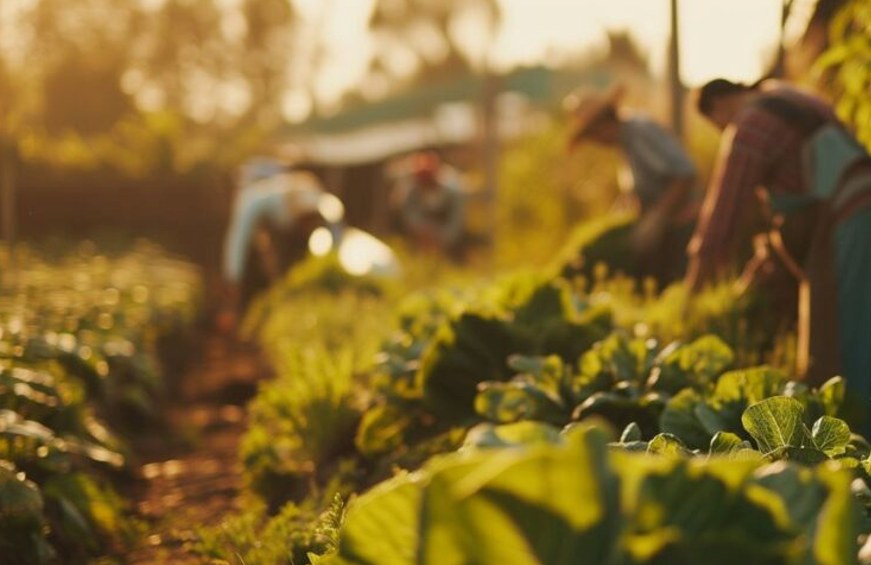Bangladesh has long been known as an agricultural country, where the heartbeat of the economy lies in its villages. With over 60% of the population living in rural areas, villages are not just homes but also vibrant centers of economic potential. In recent years, rural entrepreneurship has gained significant importance due to improved infrastructure, growing digital connectivity, and government-backed financial inclusion programs. Entrepreneurs no longer need to migrate to cities to chase opportunities; they can now start profitable ventures right in their villages.

One of the fastest-growing opportunities for rural entrepreneurs is dealership-based businesses. Whether in consumer goods, agriculture products, or machinery, dealerships offer a ready-made business model with brand support. You can explore different Dealership Business Ideas in Bangladesh to understand how branded associations are helping rural businesses thrive with lower risks and higher credibility.
In this guide, we will explore the most promising village business ideas in Bangladesh, complete with startup costs, expected returns, required skills, and potential risks.
Top 10 Village Business Ideas in Bangladesh
Bangladesh’s villages are the backbone of its economy, rich with resources and entrepreneurial potential. Rural areas are no longer limited to traditional farming; they are now evolving into hubs for diverse income opportunities. From livestock and aquaculture to eco-friendly crafts and financial services, the scope for small enterprises has expanded widely. With rising connectivity, government support, and growing consumer demand, entrepreneurs can turn simple ideas into profitable ventures. Starting a business in villages requires smart planning, resource utilization, and resilience—but the rewards can be life-changing. Let’s explore the most practical village business ideas in Bangladesh.
1. Poultry and Dairy Farming
Poultry and dairy farming remain the backbone of rural entrepreneurship.
- Startup Budget: BDT 50,000–3,00,000 depending on scale
- Potential Returns: 25–35% profit margin annually
- Skills Required: Basic livestock management, vaccination, feed planning
- Local Resource Availability: High—villages already have land, water, and fodder sources
- Risks: Disease outbreaks, feed cost fluctuations
A small poultry farm with 500 broiler chickens can generate significant income within six weeks, while dairy farms ensure year-round revenue through milk sales.
2. Fish Cultivation
With countless rivers and ponds, aquaculture is one of the most profitable rural ventures.
- Startup Budget: BDT 1,00,000–4,00,000 for pond preparation, fingerlings, feed
- Potential Returns: ROI within 6–12 months
- Skills Required: Knowledge of water quality, fish feed, and disease management
- Local Resource Availability: High in flood-prone and riverbank villages
- Risks: Water contamination, seasonal flooding
Tilapia, pangas, and koi farming are popular, ensuring both local market demand and supply to urban retailers.
3. Vegetable and High-Value Crop Farming
Bangladesh’s fertile land supports short-cycle vegetables and high-value crops like chili, tomato, and cucumber.
- Startup Budget: BDT 30,000–1,00,000 per acre
- Potential Returns: 30–40% net profit per cycle
- Skills Required: Crop planning, pest control, seasonal planting knowledge
- Local Resource Availability: Easy access to land and low-cost seeds
- Risks: Market price fluctuations, pests, and climate change
High-value crops allow farmers to sell directly to city wholesale markets for better prices.
4. Beekeeping
Beekeeping is gaining momentum as both a direct honey business and a pollination service.
- Startup Budget: BDT 20,000–50,000 for hives and colonies
- Potential Returns: 40%+ profit margins
- Skills Required: Handling bee colonies, honey extraction
- Local Resource Availability: Flowering crops and mustard fields in villages
- Risks: Colony collapse, weather dependency
Bangladesh’s rising honey demand, both domestically and internationally, makes beekeeping a lucrative seasonal venture.
5. Mushroom Farming
Mushrooms are an emerging high-demand product in Bangladesh’s urban and semi-urban areas.
- Startup Budget: BDT 25,000–70,000 for spawns, racks, and humidity control
- Potential Returns: ROI within 2–3 months
- Skills Required: Indoor climate control, spawn sourcing
- Local Resource Availability: Agricultural by-products like straw
- Risks: Spoilage due to improper storage, humidity issues
With proper training, mushroom farming can be a year-round source of income.
6. Vermicompost and Organic Fertilizers
Organic farming inputs are becoming popular as chemical fertilizer costs rise.
- Startup Budget: BDT 20,000–50,000 for worm beds and compost pits
- Potential Returns: 35–50% profit margin
- Skills Required: Basic composting methods, worm care
- Local Resource Availability: Cow dung, crop residue
- Risks: Overproduction vs. local demand balance
Selling vermicompost to nearby farmers can create a sustainable cycle of income.
7. Small-Scale Food Processing
Rural Bangladesh thrives in small-scale food processing businesses like spice grinding, puffed rice production, or mustard oil extraction.
- Startup Budget: BDT 40,000–2,00,000
- Potential Returns: 30–45% margin depending on branding
- Skills Required: Packaging, grinding, hygiene standards
- Local Resource Availability: Easy access to raw materials like rice, chili, mustard seeds
- Risks: Machinery breakdowns, poor packaging quality
Food processing not only creates local jobs but also connects directly to urban consumer demand.
8. Jute and Handicrafts
Jute is Bangladesh’s “golden fiber,” and handicrafts remain a key rural income source.
- Startup Budget: BDT 50,000–2,50,000 for raw jute and weaving tools
- Potential Returns: 20–30% profit depending on export demand
- Skills Required: Handloom weaving, design creativity
- Local Resource Availability: Abundant jute crops in rural areas
- Risks: Export market dependency, competition from synthetic products
From bags to home décor, eco-friendly jute products have global market appeal.
To explore related ventures, check Most Profitable Small Business in Bangladesh for broader ideas that complement village handicrafts.
9. Agent Banking and Mobile Financial Services
Financial inclusion is booming in rural Bangladesh through agent banking.
- Startup Budget: BDT 1,00,000–3,00,000 (security deposit and infrastructure)
- Potential Returns: Commission-based income from transactions
- Skills Required: Basic financial literacy, tech familiarity
- Local Resource Availability: Mobile and internet access expanding in villages
- Risks: Regulatory changes, cash flow mismanagement
Agent banking outlets provide money transfers, bill payments, and loan disbursement services directly to villagers.
10. Solar-Powered Micro-Enterprises
With unreliable electricity in many rural areas, solar-driven businesses are becoming essential.
- Startup Budget: BDT 1,50,000–5,00,000 depending on equipment
- Potential Returns: 25–35% ROI annually
- Skills Required: Technical installation and maintenance knowledge
- Local Resource Availability: High sunlight availability year-round
- Risks: Initial high investment, panel damage
Opportunities include solar irrigation pumps, cold storage, and mobile charging stations.
Comparison Table: Best Village Business Ideas in Bangladesh
When evaluating different village business ideas in Bangladesh, it’s important to compare them side by side. Each opportunity comes with unique requirements in terms of startup cost, profitability, scalability, and seasonal demand. While some businesses like poultry, dairy, or fish farming need higher investment but offer consistent year-round returns, others like beekeeping or mushroom farming require less capital yet provide attractive margins. Understanding these differences helps entrepreneurs make informed decisions based on available resources, skills, and long-term goals. The table below provides a quick overview of the most promising options for rural entrepreneurs in Bangladesh.
| Business Idea | Capital Needed | Profit Margin | Seasonality | Scalability |
|---|---|---|---|---|
| Poultry & Dairy | 50k–3 lakh | 25–35% | Year-round | High |
| Fish Cultivation | 1–4 lakh | 30–40% | Seasonal cycle | High |
| Vegetable Farming | 30k–1 lakh | 30–40% | Seasonal | Medium |
| Beekeeping | 20k–50k | 40%+ | Seasonal | Medium |
| Mushroom Farming | 25k–70k | 35–40% | Year-round | Medium |
| Vermicompost | 20k–50k | 35–50% | Year-round | Medium |
| Food Processing | 40k–2 lakh | 30–45% | Year-round | High |
| Jute & Handicrafts | 50k–2.5 lakh | 20–30% | Seasonal | Medium |
| Agent Banking | 1–3 lakh | Commission-based | Year-round | High |
| Solar Micro-ventures | 1.5–5 lakh | 25–35% | Year-round | High |
30-60-90 Day Action Plan for Village Entrepreneurs
First 30 Days
- Conduct market research in your village
- Choose 1–2 feasible business ideas
- Prepare a small business plan
Next 60 Days
- Arrange financing (MFIs, co-operatives, or savings)
- Secure raw materials, land, or equipment
- Start small-scale operations and test demand
By 90 Days
- Expand production gradually
- Establish distribution channels
- Begin marketing through word-of-mouth and local markets
Importance of Business Planning
Every successful business begins with a plan. Even in rural settings, having a roadmap ensures clarity on capital, revenue streams, and scalability. Writing a structured Business Plan helps reduce risks and prepares entrepreneurs to access financing from banks and NGOs.
Key Takeaways: Building a Self-Sufficient Future
Village entrepreneurship in Bangladesh is no longer limited to agriculture alone. From farming to handicrafts and financial services, opportunities are expanding rapidly. With the right mix of planning, skills, and innovation, rural entrepreneurs can generate consistent income while contributing to the country’s economic growth.
If you are serious about starting your own rural business, take the first step today. Explore how to Start a New Business and follow a clear roadmap toward success. The journey may begin in a small village, but the possibilities are limitless.

